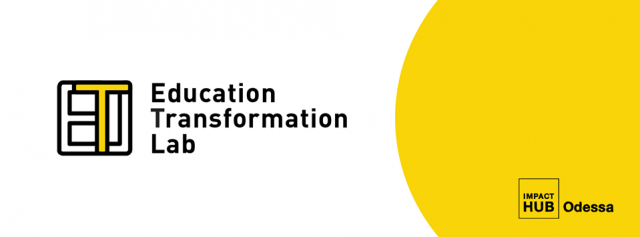Amid much debate and acrimony Ukraine’s long awaited education reform bill has recently been passed into law by the Ukrainian parliament.
There are few countries in the world that are happy with their school systems. In fact, Finland, Singapore and Australia make up the entire list almost by themselves. Most of the planet struggles with an obvious contradiction between the demands of the modern world and the approaches, methods, and results any mainstream school can offer.
Ukraine is no exception to the general trend. Although Ukrainian education has gone through several reforms and “improvements” over 25 years of independence, the national school system largely remains a product of the Soviet Union and the industrial era — deeply traditional and very authoritarian with a rigid centralized management system and outdated approaches. But the last few years have seen an active public discussion (mostly on social) of what kinds of schools we need nowadays. And the number of parents who are “unschooling” their kids and/or searching for alternative solutions is constantly growing.
At the same time, all over Ukraine a number of NGOs using different methods to bridge the gap between the needs of a post-industrial, digital society and the insufficient offerings of the current mass school. Now, as the Ukrainian government implements a new Law on Education, these NGOs’ experiences and products are sure to be very useful for boosting the transformation of Ukrainian school.
The New Law
The new Law on Education was passed on September 5, 2017. It has been in development for over two years and represents a basic legal framework that opens the door for reforms in education. Many questions remain about how it will be implemented and how much time it may take. But one thing is certain — it could lead to many positive and long-awaited changes:
1.Alternative forms of school education are finally allowed. Distance learning — learning at school via the internet, but staying physically at home. Individual learning with parents or tutors. External learning at your own pace, while taking exams or tests at school when you feel ready. All this becomes possible. Children with special educational needs who cannot go to school will now be able to have teachers come to their homes.
2.No monopoly on teacher training. Teachers will now choose training programs by themselves, for NGOs’ teacher training programs are also an option. Before the new law, only governmental institutes could provide teacher training, which undermined the very idea of innovative approaches.
3.Competitive salaries! According to the new law, a basic teacher’s salary will soon equal 3 minimum wages (equivalent to about $400 on average), with all the bonuses and special privileges teachers received prior to the new law
4.Equal opportunities for everyone. Inclusion is a new and frightening word for most Ukrainian teachers and parents. But for thousands of children with special educational needs, there will finally be an opportunity for inclusion in regular school education.
5.Schools gain greater autonomy. Now principals are elected by teachers and parents. The new law finally allows schools to manage their own finances, plan their work, and invite staff and teachers even from abroad.
6.More freedom for the teachers! Now they can choose the uniforms, methods, and tools they use in the classroom by them- selves. And even the Minister of Education can’t stop them.
These changes offer legitimate grounds for optimism. Yes, and the whole community of educational innovators, parents, civil society activists, and responsible teachers has been celebrating the new law as a crucial step towards the upgrading the Ukrainian school.
Even more encouragingly, the seeds of school transformation have fallen on fertile ground. A number of organizations in Ukraine have started preparing for these changes months and even years before the new law takes effect.
Some of them engaged in teacher training and teachers’ community development. An all-Ukrainain movement EdCamp Ukraine has managed to accomplish an almost impossible task — unite over ten thousand of the most innovative and inspiring teachers from all over the country into a powerful movement and create a massive platform for self-development and professional exchange. It all started with bringing the EdCamp format to Ukraine. The success of the first national (un) conference EdCamp Ukraine in Kharkiv in 2015 launched a massive wave of regional mini-EdCamps, which is still washing away old, boring education and communication methods at schools across the country.
At the same time, a team from the Lviv-based Center for Innovative Education Pro.Svit developed the first innovative professional development program for teachers in Ukraine based upon blended learning models (station-rotation and flipped classroom) and the project management approach to implementing school initiatives. Graduates of the Pro.Skills program can raise money for their school project using the crowdfunding platform GoFunded. The team is currently piloting a school-based development program for schools in Lviv aimed at making schools agile and creating a culture of continuous improvement within these educational institutions.
A team of online courses developers from EdEra adds technological value to school courses. A series of high-quality online courses on the core subjects of the Ukrainian school curriculum, an online platform that allows feedback and interaction between users, and constant improvements to the existing content — these are the key elements of EdEra’s innovations. And they aren’t only popular among teachers. EdEra were invited to participate in the New Ukrainian School concept development (the concept at the foundation to the new law).
One of the core problems of today’s Ukrainian school is the teaching profession’s low social prestige. To fight this prejudice and to highlight the best members of the Ukrainian teachers’ community, the non-profit public association Osvitoria is bringing to Ukraine the Nobel Prize for teachers: the Global Teachers’ Prize. Five teachers who successfully completed the application process and were selected by a jury (consisting of key Ukrainian innovators in education, a vice-minister for Education, media opinion leaders, and one of the top 10 Global Teachers’ Prize finalists) will go to Dubai. And the overall winner will receive a monetary prize of 100,000 UAH (over $3,700).
Another international initiative that has come to Ukraine right on the cusp of the new Law on Education is Teach for Ukraine, a leadership program that invites young graduates and young professional to work in rural schools. This gives schools in the regions more opportunities and, at the same time, redefines the role of the teacher. WesternIS Enterprise initiated this Ukrainian version of the world-renowned Teach for All program. In September 2017, a team of participants was selected to pilot the program and went to schools in the Kyiv, Lviv and Odessa region.
Unlike other initiatives, the Education Transformation Lab (ETL) at Impact Hub Odessa is not focused on national-level projects. Instead it provides cutting-edge educational innovations for the schools of Odessa and the Odessa region. We partner with most of the above mentioned organizations (and some others) to bring and implement their projects and products in local schools, ensuring partnerships and quality results. Among other things, the ETL team has invited to Ukraine Margret Rasfeld, the founder of a famous Evangelical School Berlin Center and the School in Transformation movement. Right now, we are preparing to set up an incubator of alternative schools to follow Rasfeld’s model.
The new education law has been passed, and Ukrainian society’s expectations are extensive. However, the challenge is also huge. We will need to re-educate over 480 thousand teachers in the country. Looking at the community of independent actors in education innovation in Ukraine, one cannot but admire their courage and professionalism. But one thing is certain: we can only cope with the goals of the new Law by uniting our efforts.
Maryna Goncharenko is the co-founder of Impact Hub Odessa and holds the position of “inspirer” at Education Transformation Lab.




































